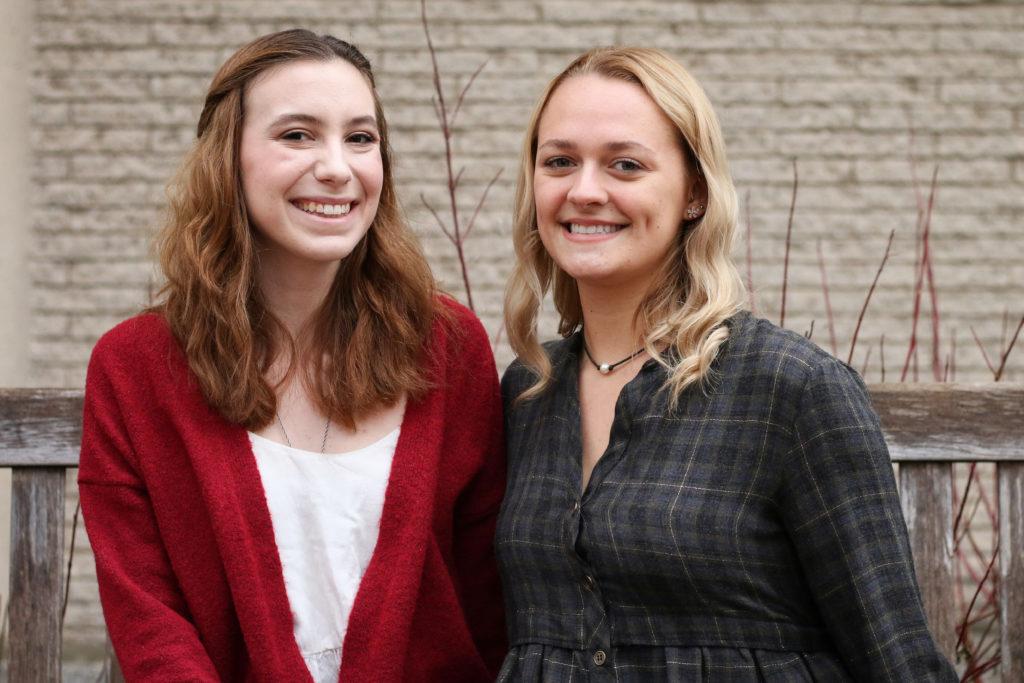A student organization is dedicating a month to teaching students about the prevalence of rare diseases and legislation surrounding various conditions.
RARE GW, an organization that stands for research, advocate, reform and educate, will host the first-ever Rare Disease Awareness Month starting and ending with an event on Feb. 6 and 20. Students in the group said the month, filled with three educational events, will equip students with the resources to understand health care policies about rare diseases.
“We really want to get students engaged and realize that rare isn’t all that rare,” Shira Strongin, the co-president of RARE GW, said. “There are so many students here on campus who are impacted by rare disease. We didn’t want to make it just focused on the rare disease community. We wanted to make it accessible to everyone.”
The student organization held its first event Wednesday, called Patient Perspectives, which featured a panel of students who discussed the challenges they faced in applying to universities like having to consider how close their college is to a hospital.
The second event, The Bleeding Heart, will be held Wednesday in the Marvin Center, where attendees can make get-well cards for patients at the Children’s National Institute of Health hospital and watch organ donation videos.
Policy and Pizza, the final event of the monthlong series, will be held in District House on Feb. 20. RARE GW will host a discussion about health care policy with a representative from the National Organization for Rare Disorders and former congressional staffer Steve Silvestri of the EveryLife Foundation for Rare Diseases.
Strongin said she wanted to host the events as a build up to Rare Disease Awareness Day on Feb. 28. Many rare disease conferences and advocacy sessions, like Rare Disease Week on Capitol Hill, take place during this time of year, Strongin said.
The week on Capitol Hill runs from Feb. 24 to Feb. 28, where attendees can watch a documentary on rare diseases in the Ronald Reagan Building or meet with members of the House of Representatives and Senate to discuss health care policies.
“We thought it would be a good idea to bring it GW and make it a little more accessible because some students may not be able to get to Capitol Hill,” Strongin said.
Strongin, who has an undiagnosed neurovascular illness, said she wants to broaden the organization’s reach to students who do not have a rare disease and might not be aware of how many individuals are affected. One in 10 Americans have a rare disease, according to the nonprofit advocacy group Global Genes.
“It’s already an annual event in the world, so it just makes sense to do it on campus as well,” she said.
Taylor Kane, the co-president of RARE GW, said she wants the event to draw in students who might not be aware of the rare disease community or health care but are interested in policymaking.
“We thought that would definitely help people come out to the event, regardless of the fact if they care that much that it’s about rare diseases,” Kane said.
Kane said RARE GW plans to promote the events by sharing them both on the organization’s Facebook page and on each member’s social media page to encourage friends to attend events. Organizations that co-sponsor RARE GW, like Be the Match on Campus and the GW Red Cross, will also share the events on their social media pages, she said.
Allison Herrity, a policy co-chair for RARE GW, said she helped plan the last discussion event on health care policy on Feb. 20. Herrity also sat on the patient perspectives panel Wednesday because she has two rare diseases, she said.
“The GW community is full of people impacted by rare disease,” she said in an email. “GW students, faculty and staff are rare disease patients, carriers, caregivers, family members and friends.”





